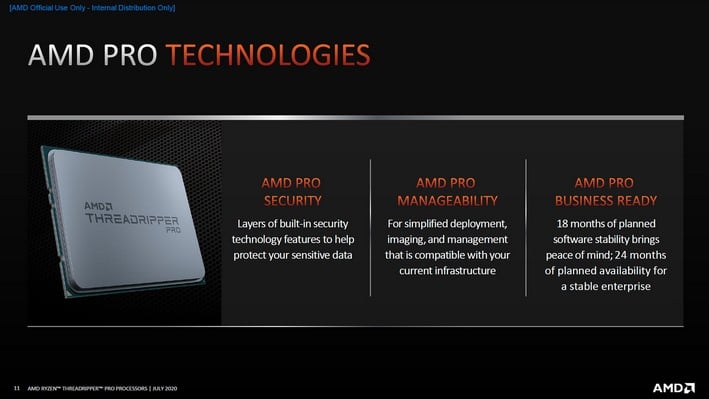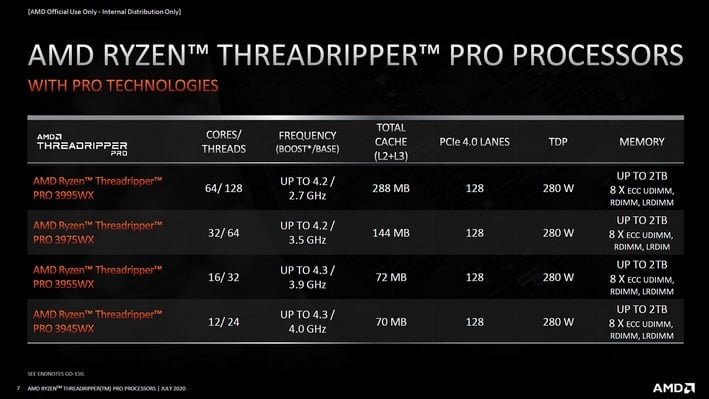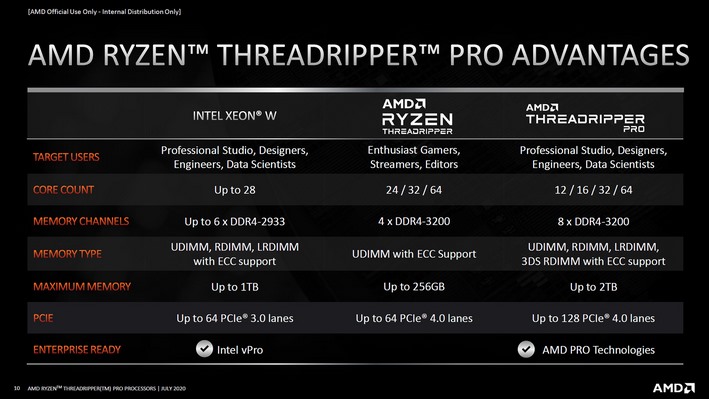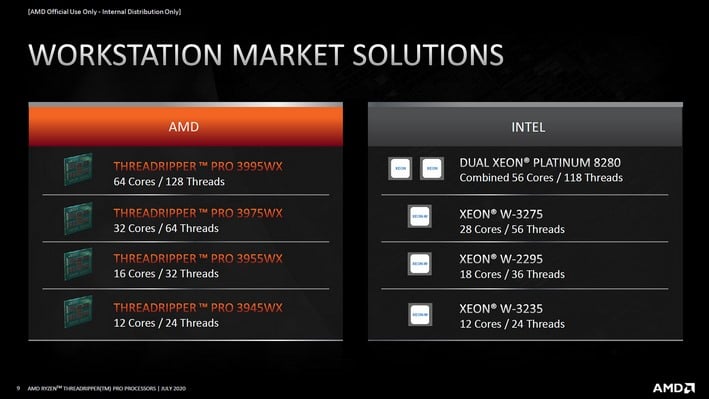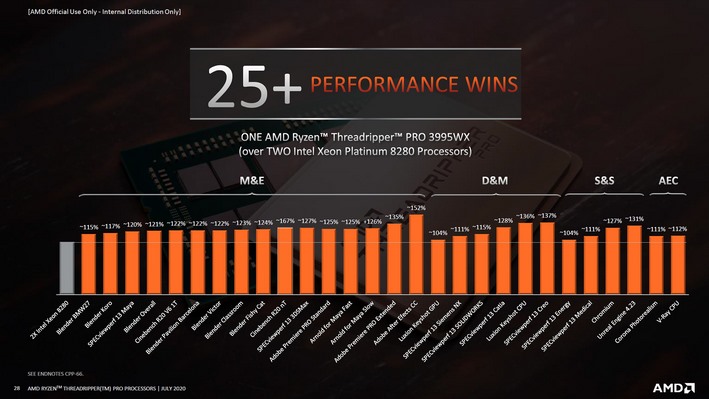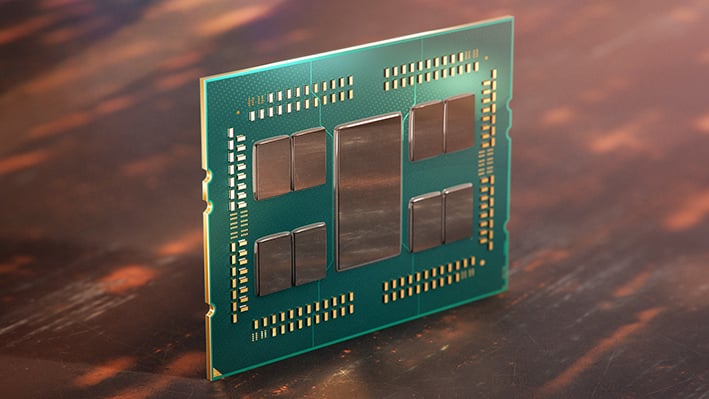AMD Unveils Ryzen Threadripper Pro Processors To Battle Intel Xeon W
AMD has offered “PRO” branded Ryzen processors for a number of years. Although the base processor architecture and platform is unchanged versus their standard counterparts, Pro series Ryzen processors enable a number of security, reliability, and manageability features targeted at the enterprise market, where Intel’s competitive vPro-enabled products play. Today, however, AMD is pushing its Pro branding and feature set way up its product stack, with a new line-up of powerful Ryzen Threadripper Pro processors, designed for high-end workstations and creative professionals.
Unlike AMD Ryzen Pro desktop processors, which use the same socket and platform as their non-Pro counterparts, Ryzen Threadripper Pro processors leverage a new chipset, socket, and memory configurations that’s more aligned with data center-targeted EPYC processors. Threadripper Pro processors have higher clocks to boost performance, though.
The initial line-up consisting of four new processors is outlined in the table above. The family is spearheaded by the flagship 64-core / 128-thread AMD Ryzen Threadripper Pro 3995WX and the entry-level product is the 12-core / 24-thread Threadripper Pro 3945WX. The 16-core Ryzen Threadripper Pro 3955WX and 32-core / 64-thread 3975WX processors round out the rest of the line-up. As you can see, base clocks vary from 2.7GHz – 4GHz depending on the core count, and boost clocks top out at either 4.2GHz or 4.3GHz. Total cache ranges from 70MB to a monstrous 288MB, and all of the processors have 280W TDPs and support 128 PCIe 4 lanes. Total memory support tops out at 8 channels of 2TB of ECC memory, at a frequency up to 3200MHz. Desktop Ryzen Threadripper 3000 series processors support quad-memory channels and a maximum of 256GB, while EPYC processors support up to 4TB.
To support those additional memory channels, Ryzen Threadripper Pro processors require a different socket and platform than their standard desktop-targeted counterparts. Ryzen Threadripper Pro processors will leverage workstation-class motherboards, similar to a single-socket EPYC. We should also note that Ryzen Threadripper Pro processors support only a single-socket, so dual-processors configurations, which are available with EPYC, are not an option here.
AMD Ryzen Threadripper Pro series processors are positioned directly against Intel’s Xeon W class products. AMD, however, has a clear advantage at the upper end of the stack. Intel’s single-socket workstation processors currently top-out at 28-cores, whereas Threadripper Pros feature up to 64-cores. To come close to the same core count with an Intel-based setup, it would require a pair of Xeon Platinum 8280 processors, for a total of only 56-cores / 118-threads.
Even then, AMD is quick to point out that a single Threadripper Pro 3995WX offers not only higher core and thread counts, but higher overall performance with a wide variety of workloads as well. In addition to superior performance, however, Threadripper Pro processors also offer double the number of PCIe lanes – and those lanes are of the PCIe 4.0 variety. Threadripper Pros support more total memory, and more memory channels, at higher-clocks as well, for additional capacity and bandwidth, which no doubt helps in some of the workloads referenced in the benchmark data above.
AMD partnered with Lenovo to launch the Ryzen Threadripper Pro series of processors. They will initially arrive in Lenovo’s ThinkStation P620 series of workstations, with availability slated for September. At this point in time, Ryzen Threadripper Pro processors will be offered only by OEMs and system integrators, in pre-configured, purpose-built systems. There are no plans to sell these processors and their associated motherboards separately at this point in time.
We’re hoping to get one of Lenovo’s workstations in the lab when they become available, so stay tuned.

